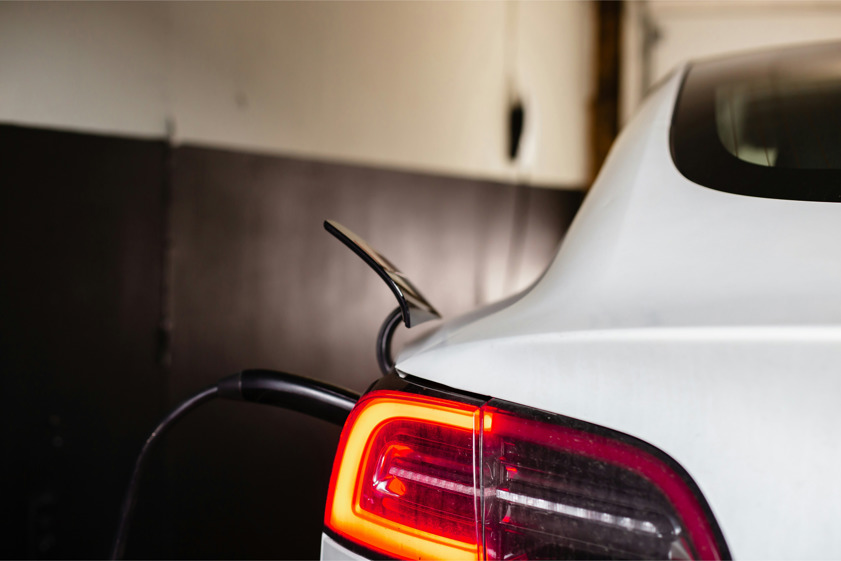
As the world increasingly shifts towards sustainable transport, electric vehicles (EVs) have surged in popularity across the UK. However, with a variety of types available, it can be confusing to decide which EV is right for you. This blog will explore the main types of electric vehicles, including Battery Electric Vehicles (BEVs) and Hybrid Electric Vehicles (HEVs), to help you navigate this rapidly evolving landscape.
Before diving into the different types of electric vehicles, it's essential to familiarise yourself with some key terms:
- Range Anxiety: The fear that an EV will run out of charge before reaching its destination.
- Regenerative Braking: A system that recovers energy during braking and uses it to recharge the battery.
- Charging Infrastructure: The network of public and private charging stations available for EVs.
Understanding these terms will help you better grasp the EV options discussed below.
BEV Meaning: A Battery Electric Vehicle (BEV) is fully electric, relying solely on a rechargeable battery to power its motor. This means BEVs have zero emissions, making them the most environmentally friendly option. These vehicles are designed to be charged from an external electricity source, typically through home chargers or public charging stations.
Advantages of BEVs:
- Zero Emissions: BEVs do not produce any tailpipe emissions, making them a green choice for reducing your carbon footprint.
- Lower Running Costs: With no petrol or diesel to purchase, running a BEV is significantly cheaper than traditional vehicles.
- Simplicity: BEVs have fewer moving parts than internal combustion engine (ICE) vehicles, leading to lower maintenance costs.
- Popular BEV Models in the UK: Tesla Model 3, Nissan Leaf, and BMW i4.
HEV Meaning: Hybrid Electric Vehicles (HEVs) combine a traditional internal combustion engine (ICE) with an electric motor. Unlike BEVs, HEVs cannot be plugged in to charge the battery; instead, the battery is charged through regenerative braking and the ICE.
Advantages of HEVs:
- Extended Range: The combination of an ICE and an electric motor means HEVs can travel longer distances without the need for frequent refuelling or charging.
- Fuel Efficiency: HEVs are more fuel-efficient than traditional petrol or diesel vehicles, as the electric motor assists the ICE, especially during city driving.
- Popular HEV Models in the UK: Toyota Prius, Honda Civic Hybrid, and Ford Kuga Hybrid.
PHEV Meaning: Plug-In Hybrid Electric Vehicles (PHEVs) are similar to HEVs but come with a larger battery that can be charged from an external power source. This allows PHEVs to run on electric power alone for short distances, typically between 20 to 40 miles, before the ICE takes over.
Advantages of PHEVs:
Dual Fuel Source: The ability to switch between electric and petrol/diesel power gives PHEVs flexibility, particularly on longer journeys.
Lower Emissions: When running on electric power, PHEVs produce zero emissions, contributing to a reduction in overall CO2 output.
Popular PHEV Models in the UK: Skoda Superb iV, Volvo XC90 Recharge, and BMW 330e.
RE-EV Meaning: Range-Extended Electric Vehicles (RE-EVs) primarily operate as BEVs but have an additional small petrol or diesel generator to recharge the battery on the go. This extends the range of the vehicle without directly powering the wheels.
Advantages of RE-EVs:
- No Range Anxiety: The backup generator alleviates concerns about running out of battery charge during longer trips.
- Flexibility: RE-EVs offer a blend of electric vehicle efficiency with the reassurance of an extended range when needed.
- Popular RE-EV Models in the UK: BMW i3 with Range Extender.
Charging your EV is a crucial aspect of ownership. In the UK, there are three main types of chargers:
- Level 1: Basic home charging using a standard 3-pin plug, offering slow charging rates.
- Level 2: Faster charging available at home or public stations, typically requiring a dedicated EV charger.
- DC Fast Charging: The fastest option, found at public stations, capable of recharging most EV batteries to 80% in 30-60 minutes.
With an expanding network of public charging stations, including rapid chargers along major motorways, the infrastructure is growing to meet the increasing demand for EVs.
Why not check out our EV Range & Mileage: Everything You Need to Know blog for more information? We also produce a range of weekly blogs on various topics, which can be found in the blog section of our website.
Nationwide Vehicle Contracts are one of the UK's leading car leasing brokers and offers a range of leasing deals to suit every need. To find out more, check out our comprehensive car leasing guides or call one of our experts on 0345 811 9595.
Originally posted: 30th August 2024

